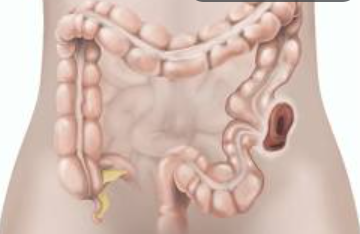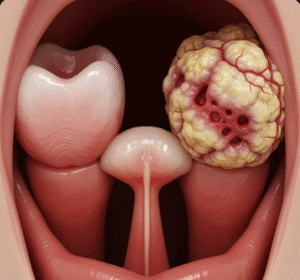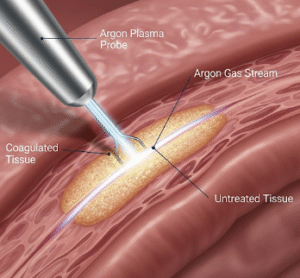Overview
Closure of a loop colostomy is a surgical procedure performed to reverse a temporary colostomy, restoring normal bowel continuity and function. A loop colostomy is typically created to divert fecal flow away from a diseased or healing portion of the colon, often after surgery for trauma, cancer, or inflammatory bowel disease.
In South Korea, colostomy closure is performed using advanced minimally invasive or open surgical techniques, ensuring high success rates, reduced complications, and faster recovery. Hospitals provide comprehensive preoperative assessment, skilled surgical teams, and structured post-operative care for optimal outcomes.
What is Closure of Loop Colostomy?
A loop colostomy closure involves reconnecting the two ends of the colon that were previously diverted to the abdominal wall. The procedure removes the stoma and restores natural bowel movement, improving quality of life and eliminating the need for a colostomy bag.
Techniques include:
- Open colostomy closure: Traditional surgery with a larger incision for complex cases.
- Laparoscopic colostomy closure: Minimally invasive method with small incisions, faster recovery, and minimal scarring.
- Stapled or hand-sewn anastomosis: Techniques used to reconnect the bowel, depending on patient anatomy and surgeon preference.
The procedure is usually performed several weeks to months after the initial colostomy, once the underlying condition has resolved and the patient is fit for surgery.
What are the Benefits?
Closure of a loop colostomy offers several benefits:
✔ Restores normal bowel function and continence.
✔ Eliminates the need for a colostomy bag, improving quality of life.
✔ Minimally invasive options reduce post-operative pain, scarring, and recovery time.
✔ Reduces risk of long-term stoma complications, such as skin irritation or hernia.
✔ High success rates in South Korean surgical centers due to advanced techniques and expert surgeons.
Procedure Details
1) How should I prepare for Closure of Loop Colostomy?
- Medical evaluation: Blood tests, imaging (CT scan or contrast studies), and assessment of stoma site and bowel health.
- Bowel preparation: Laxatives or enemas may be required to clean the bowel before surgery.
- Medication review: Blood thinners or other medications may need adjustment.
- Preoperative counseling: Discuss anesthesia, surgical approach, potential risks, and recovery expectations.
- Arrange post-operative support for mobility, wound care, and dietary adjustments.
South Korean hospitals provide personalized preoperative planning, including imaging studies to assess bowel continuity and suitability for reversal.
2) What happens during the procedure Closure of Loop Colostomy?
- Surgery is performed under general anesthesia.
- The surgeon removes the stoma, mobilizes the bowel ends, and performs an anastomosis (reconnection).
- In laparoscopic cases, small incisions and camera-guided instruments are used for precise dissection and reconnection.
- Bleeding is controlled, and the abdominal wall is closed with sutures.
- Surgery typically lasts 1–3 hours, depending on complexity and surgical approach.
Korean surgeons focus on minimizing tension on the bowel, preserving blood supply, and preventing leaks.
3) What happens after a Closure of Loop Colostomy?
- Patients are monitored in the hospital for 2–5 days depending on procedure complexity.
- Pain and discomfort are managed with medications; early mobilization is encouraged.
- Dietary progression starts with liquids and gradually advances to solid foods as bowel function returns.
- Patients are advised to avoid heavy lifting and strenuous activity for 4–6 weeks.
- Full recovery and resumption of normal bowel habits usually occur within 4–8 weeks.
Korean hospitals provide structured post-operative care, dietary guidance, and follow-up imaging to ensure successful bowel reconnection.
Risks / Benefits
Potential Risks:
- ➤ Anastomotic leak (rare but serious)
- ➤ Infection at the incision site or within the abdomen
- ➤ Bleeding or hematoma
- ➤ Bowel obstruction or delayed return of bowel function
- ➤ Hernia at the stoma site
- ➤ Risks related to anesthesia
Major Benefits:
- ✔ Restoration of natural bowel function and continence
- ✔ Elimination of colostomy bag dependency
- ✔ Minimally invasive techniques reduce recovery time and scarring
- ✔ Prevention of stoma-related complications
- ✔ High success rates in experienced South Korean surgical centers
Recovery and Outlook
- Immediate post-op: Pain management, vital monitoring, and early ambulation.
- First week: Gradual resumption of light activities; careful monitoring of bowel movements.
- 2–6 weeks: Most patients return to normal activities; full recovery depends on individual health and surgical complexity.
- Long-term outlook: Patients experience improved quality of life, restored bowel continuity, and minimal long-term complications.
South Korean hospitals provide post-operative follow-ups, imaging if needed, and dietary counseling to ensure smooth recovery.
When To Call the Doctor
Seek immediate medical attention if you experience:
- ➤ Severe abdominal pain or tenderness
- ➤ Fever, chills, or signs of infection
- ➤ Persistent vomiting or inability to pass stool or gas
- ➤ Unusual swelling or redness at the incision site
- ➤ Changes in bowel habits that do not resolve
Best Korea Option / Process
South Korea is a leading destination for loop colostomy closure due to:
- Highly skilled colorectal and general surgeons experienced in both open and laparoscopic techniques
- Advanced imaging and surgical technology for precise bowel reconnection
- Minimally invasive approaches for faster recovery and reduced scarring
- Comprehensive preoperative and post-operative care including dietary guidance and rehabilitation
- International patient support, including translators, accommodation, and follow-up assistance
- Affordable treatment costs without compromising quality
Top hospitals for colostomy closure in Korea:
- Samsung Medical Center
- Asan Medical Center, Seoul
- Seoul National University Hospital
- Severance Hospital (Yonsei University Health System)













